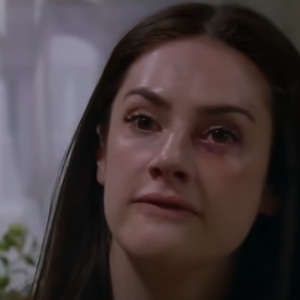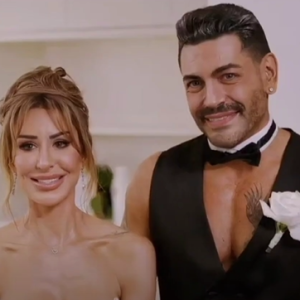Shekinah’s Justification of Ignoring Sarper’s Depression Sparks Controversy: A Deep Dive into Love, Responsibility, and Absolutes
In the current whirlwind of 90 Day Fiancé drama, one storyline that’s grabbing attention—and igniting fierce debates—is Shekinah’s unapologetic stance on her treatment of Sarper amid his struggles with depression. From defending her harsh words on social media to rationalizing her behavior within the confines of their complicated relationship, Shekinah is fiercely convinced she’s justified. She claims to have endured her own hardships, insisting that her patience—and her frustrations—are well-earned. But as viewers watch the footage play out, many are left questioning whether her excusing Sarper’s depression as a justification for his coldness, or even mistreatment, is merely a way to sidestep accountability in a relationship that clearly demands maturity and mutual understanding.
At the core of this controversy is Shekinah’s conflicting narrative about what she initially saw in Sarper versus where they stand now. Early on, she boasted about his masculinity, describing him as the ideal alpha male who would take charge, set boundaries, and meet her high standards of leadership. Yet, fast-forward to present-day confrontations, and her tone shifts drastically—describing Sarper as passive, irresponsible, and lacking the qualities she once admired. She dismisses the progress he’s made by framing it as him simply being pulled out of a toxic lifestyle. But critics argue that her disdain for his low responsibility skills, especially given his inexperience with relationships, reveals a lack of genuine empathy. Instead of supporting his growth, she appears to blame him, suggesting that his depression—or any perceived shortcomings—are reasons to dismiss or criticize him, rather than to uplift him.
The most contentious part of Shekinah’s commentary revolves around her handling of Sarper’s mental health. She contends that depression isn’t an excuse for bad behavior and questions why she should tolerate mistreatment—regardless of his mental state. To her, her patience is limited; if Sarper’s depression fuels his harshness, then her frustration is justified, and her response necessary. But many viewers see this as a dangerous oversimplification, dismissing the complexity of mental health struggles. Depression can, indeed, make communication difficult, but it should never be used as a shield to justify disrespect or emotional abuse. Critics warn that conflating mental health with bad behavior fosters harmful stigmas and enables toxic dynamics—especially when one partner remains loyal and patient, only to be met with blame and criticism. 
Adding fuel to the fire is Shekinah’s insistence that her continued relationship with Sarper somehow contradicts her complaints. Despite her public protests, she is still with him—married, in fact—yet she openly criticizes his actions. This paradox leads many to wonder: if she recognizes his flaws so openly, why stay? Is it because her love isn’t genuine, or because societal pressures and the hope of change compel her to stick around? Her refusal to leave, despite her harsh commentary, hints at a complex, perhaps even manipulative tension—where she portrays herself as a victim in one breath but remains deeply entangled in the relationship. Her defense that she’s merely “explaining” her side, given the show’s edited snippets, rings hollow for many, who argue that her words and actions paint a picture of someone unwilling to accept responsibility for her part in the tumult.
As this drama unfolds, it’s impossible to ignore the broader themes at play: accountability, compassion, and the harsh realities of love in the spotlight. Shekinah’s rhetoric raises questions about what it truly means to support a partner through mental health challenges, and whether her aggressive stance is rooted in love or self-preservation. Ultimately, her story underscores that relationships—especially those under public scrutiny—are rarely black and white. Understanding, patience, and mutual respect are not optional if love is to survive storms like depression and miscommunication. Whether viewers agree or disagree, one thing is clear: this fiery saga is a reminder that behind every televised breakup are deeper stories of human vulnerability, responsibility, and imperfect love.





